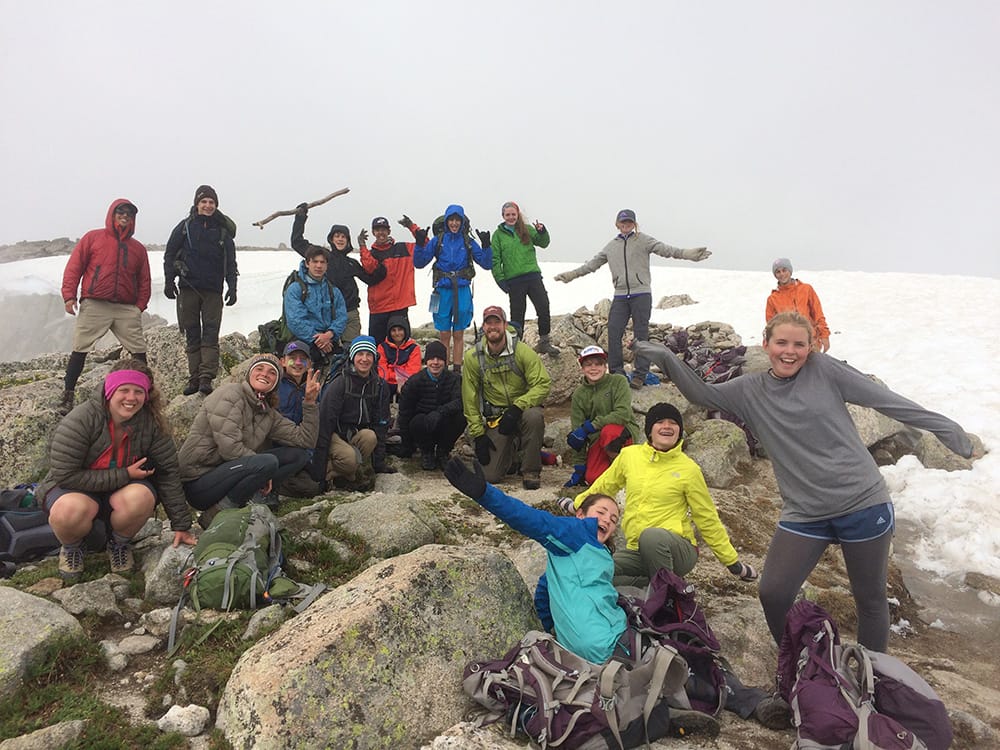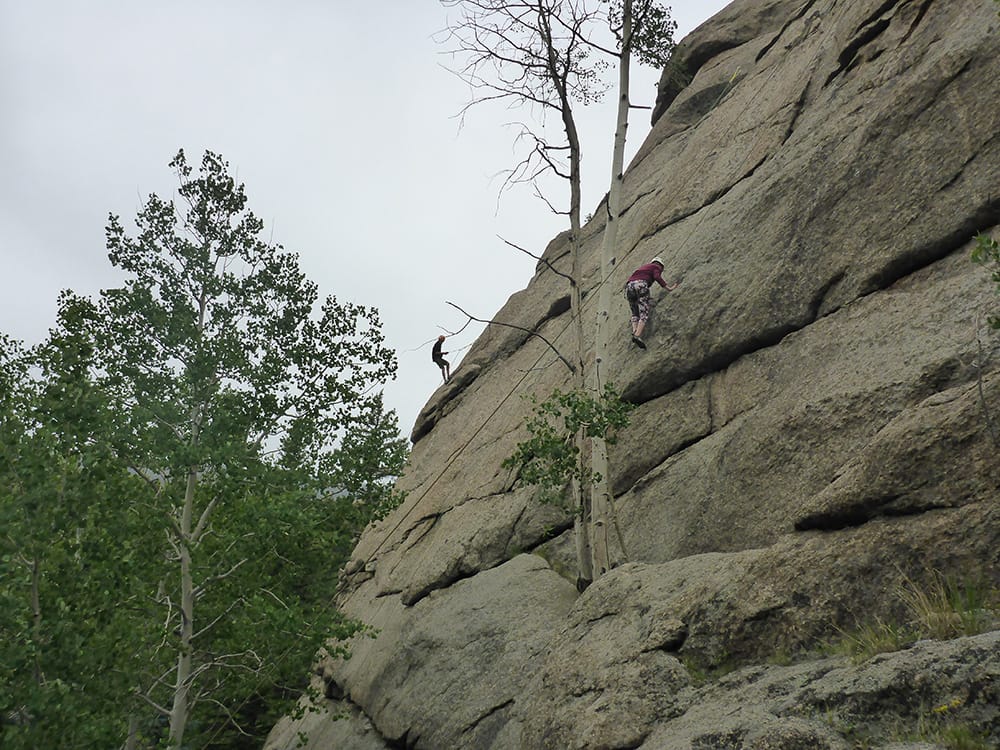Being a Beginner is Great! Here’s Why.

Becoming “experts” together on our first mountain summit!
Getting acquainted with outdoor activities can be both challenging and intimidating. There are a lot of factors to consider, especially if you are new to the outdoors. But it doesn’t have to be scary! Our first recommendation: Do not make being a beginner one of those factors.
We’re all beginners at some point. But when we first try a new activity, sometimes thoughts of inadequacy creep up within us. During my first extended outdoor experience on a seven-day backpack trip in Pisgah National Forest, I fell in love with the sense of self-awareness and calmness I achieved—even though it was my first time ever wearing a heavy pack! But I also thought, “I will conquer this new skill to be a master, and only then I will truly receive the benefits of the outdoors.” It has taken me a long time to realize that being the best at something, or at the very least surpassing “beginner status,” is not the reason to go out into nature—and is not the only way to receive benefits from nature.
In fact, the whole reason I was flocking to the wilderness was to find some peace from the constant competition in my daily life. We are immersed in a culture that values performance. In education, career advancement, even the local rock climbing gym, there is a looming presence of competitiveness. It is hard not to engage in this culture, and instead simply enjoy being outside. I felt torn and confused: I began engaging in that competitive culture outside, though I was going there in the first place to specifically avoid it. It’s hard to break free of something so ingrained in us, though, even in the wilderness. I started to make an intentional effort to focus more on enjoying the experience of being surrounded by nature, and working toward getting to know myself and my fellow companions. I tried to think less of how far or fast I went, and think more about what it felt like to climb over a mountain ridge or walk silently in the forest. I had enough outdoor skills to keep myself safe, of course, and loved learning new tricks from fellow backpackers, but I stopped comparing myself to other people (the “masters”). Think about what Theodore Roosevelt said: “Comparison is the thief of joy.”

Rock climbing for the first time.
If I could give one piece of advice to Adventure Treks students, it would be to not let fear of being new at something prevent you from having a wonderful experience in the outdoors. Many of our students come to Adventure Treks having never backpacked or rock climbed or whitewater rafted. It is not until the second day or so that they realize that most of the other people on the trip are in the same boat! Instructors teach students everything they need to know throughout the entire adventure, and by trip’s end, students usually aren’t beginners anymore—without any help, they can set up a tent, clean up camp, tie a figure-eight knot, pack their backpack, and much, much more.
As my love for the outdoors continues to grow, so does my desire and capability to learn and improve on new outdoor skills. For teenagers and adults alike, this is a great way to build confidence and increase your comfort level in both the wilderness and at home or school. I make more of an effort now to focus on my mindset and intention when I’m learning new outdoor skills. My goal is to not let my fear of “looking weird” or not being good at something prevent me from having an awesome outdoor experience. Living by this sentiment has greatly increased the quality of my outdoor experiences and my happiness.

